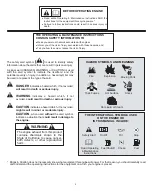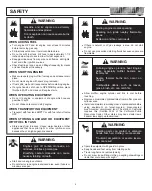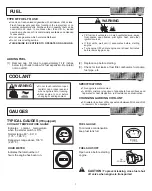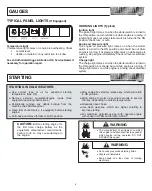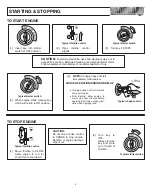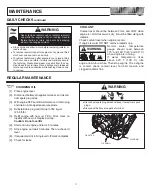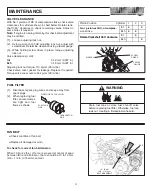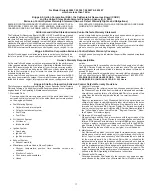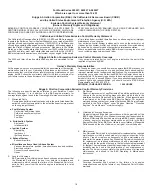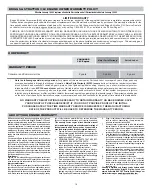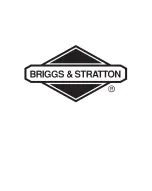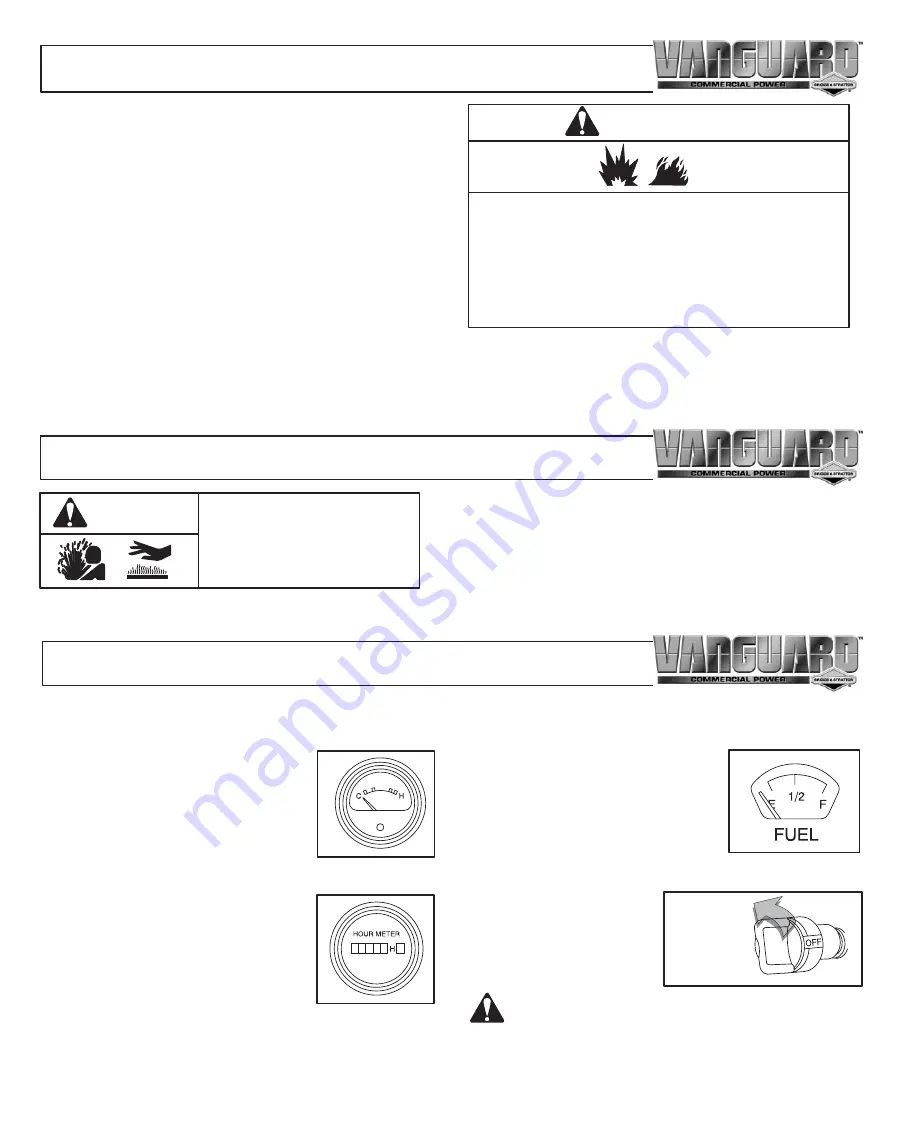
7
FUEL
TYPE OF FUEL TO USE
•
Use clean, fresh, unleaded gasoline with a minimum of 85 octane.
Fresh fuel prevents gum from forming in the fuel system or on
essential carburetor parts. Purchase fuel in quantity that can be
used within 30 days. In countries other than U.S.A., leaded
gasoline may be used if it is commercially available and unleaded
is unavailable.
•
Do not use gasoline which contains Methanol.
•
Do not mix oil with gasoline.
•
THIS ENGINE IS CERTIFIED TO OPERATE ON GASOLINE.
WARNING
•
Fill fuel tank outdoors or in well-ventilated area, away
from sparks, open flames, pilot lights, heat, and other
ignition sources.
•
If fuel spills, wait until it evaporates before starting
engine.
•
Turn engine OFF and let engine cool at least 2 minutes
before removing gas cap.
ADDING FUEL
[1]. Remove cap. Fill tank to approximately 1-1/2 inches
below top of neck to allow for fuel expansion. Be careful
not to overfill.
[2]. Replace cap before starting.
[3]. Check for fuel leaks at fuel filter, carburetor, fuel pump,
fuel pipe, etc.
COOLANT
WARNING
•
Do not touch radiator or open
radiator cap, or open reservoir
when engine is hot or running.
•
Allow engine to cool before
changing or adding coolant.
SPECIFICATIONS
•
This engine is water cooled.
•
A 50/50% mixture is required of phosphate-free antifreeze and
tap water for heat dissipation, rust resistance and lubrication.
CHANGING & ADDING COOLANT
•
Fill radiator to bottom of fill cap seat and between FULL and LOW
in reservoir, if so equipped.
GAUGES
TYPICAL GAUGES
(If Equipped)
COOLANT TEMPERATURE GAUGE
Indicates coolant temperature
when the starter switch is ON.
Normal range 80
°
– 90
°
C
(175
°
– 195
°
F).
Dangerous range above 105
°
C
(220
°
F).
FUEL GAUGE
To minimize condensation,
keep fuel tank full.
HOUR METER
Indicates the total number of
hours the engine has been run.
FUEL SHUT-OFF
Open valve before starting
engine.
ON
POSITION
CAUTION:
To prevent leaking, close fuel shut-
off valve when engine is transported.
Summary of Contents for 430447
Page 20: ......


